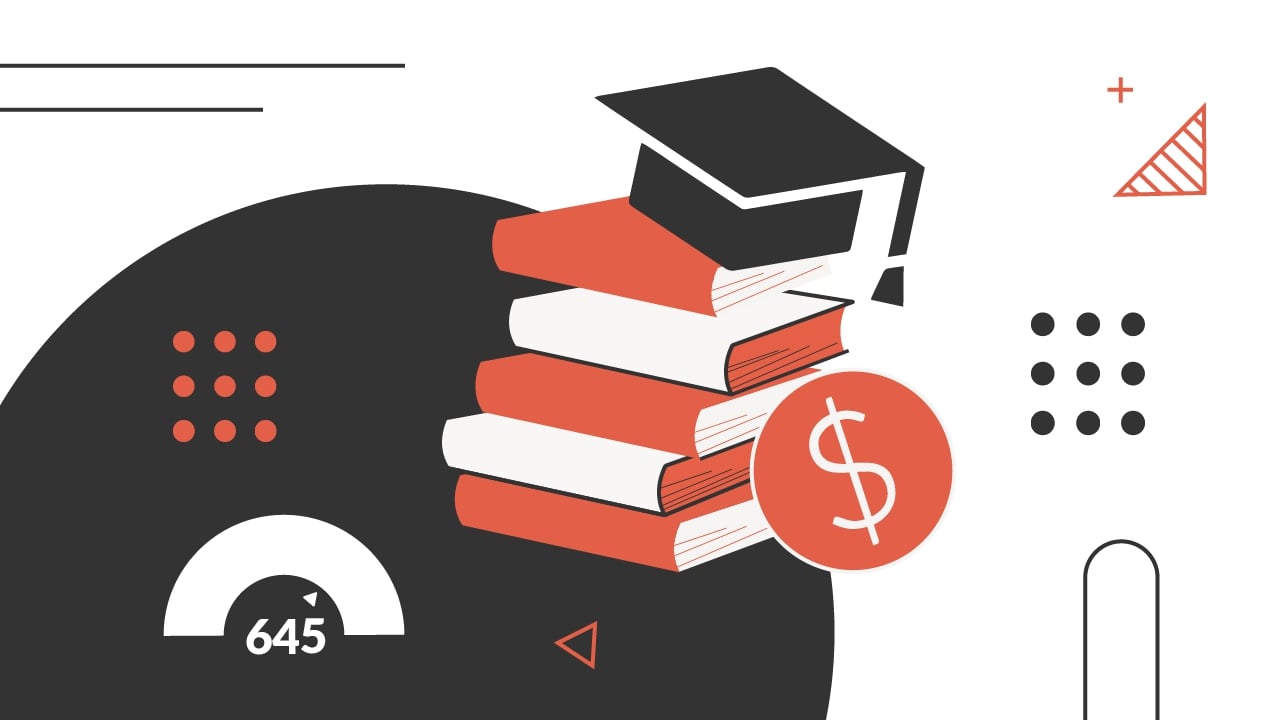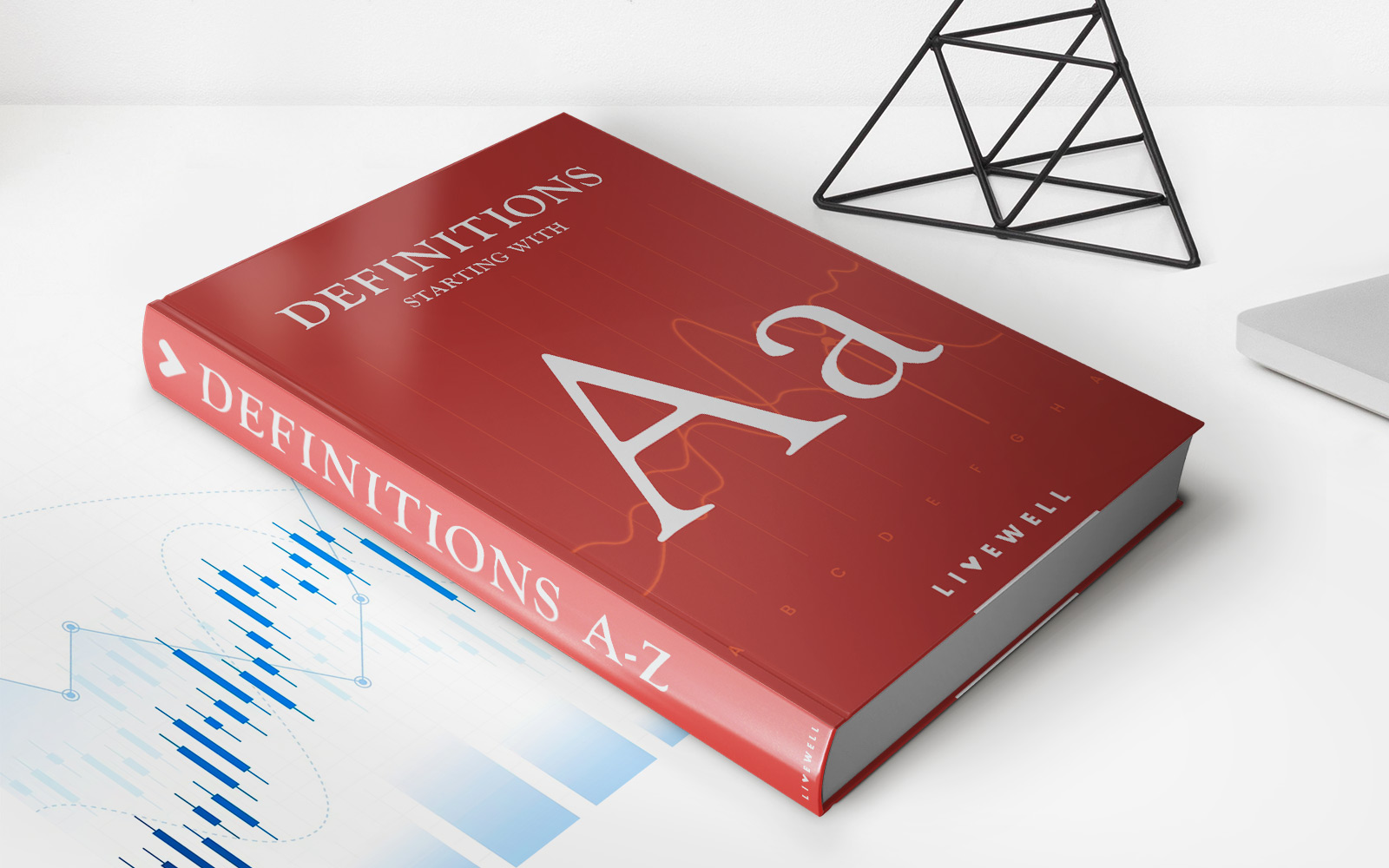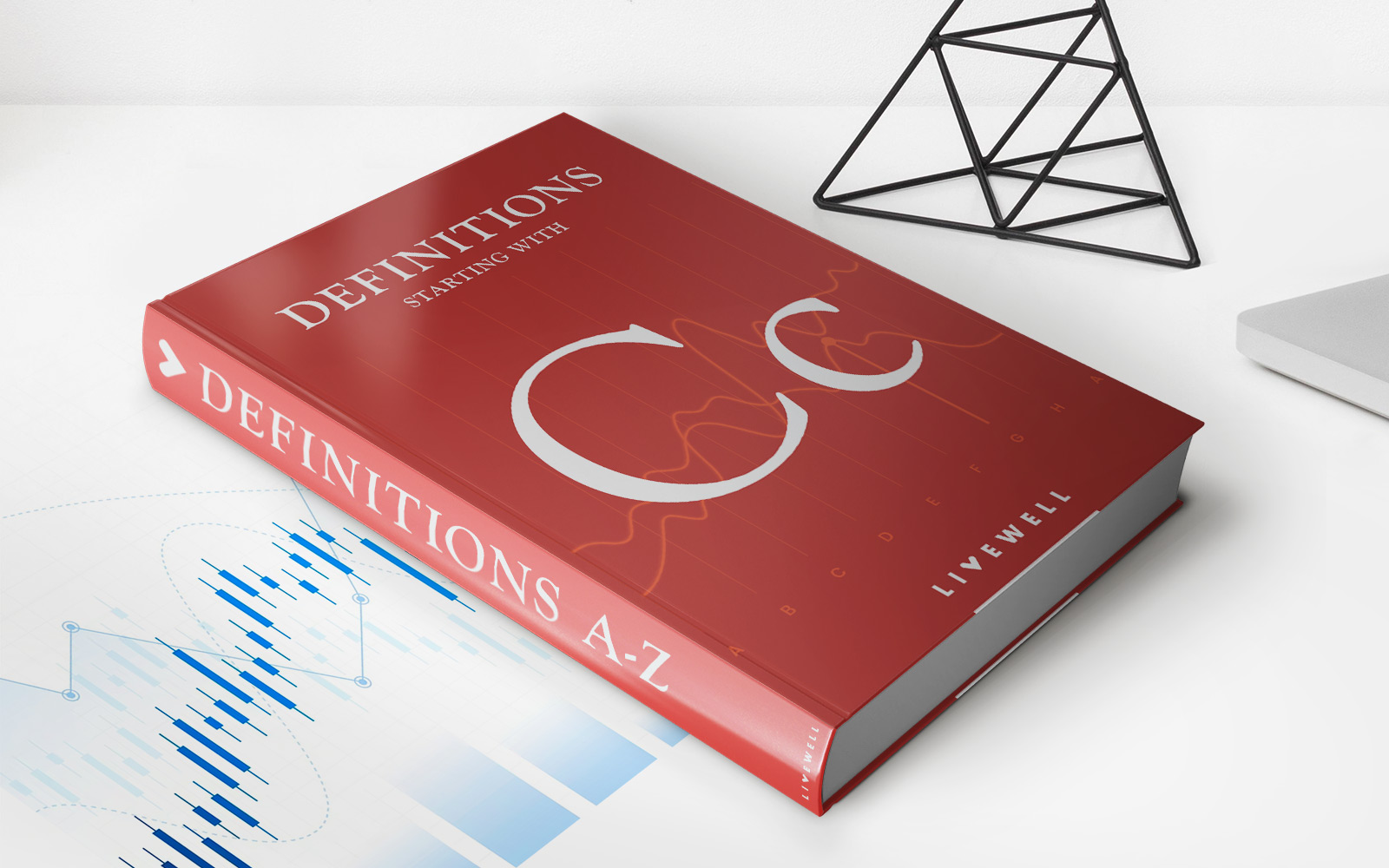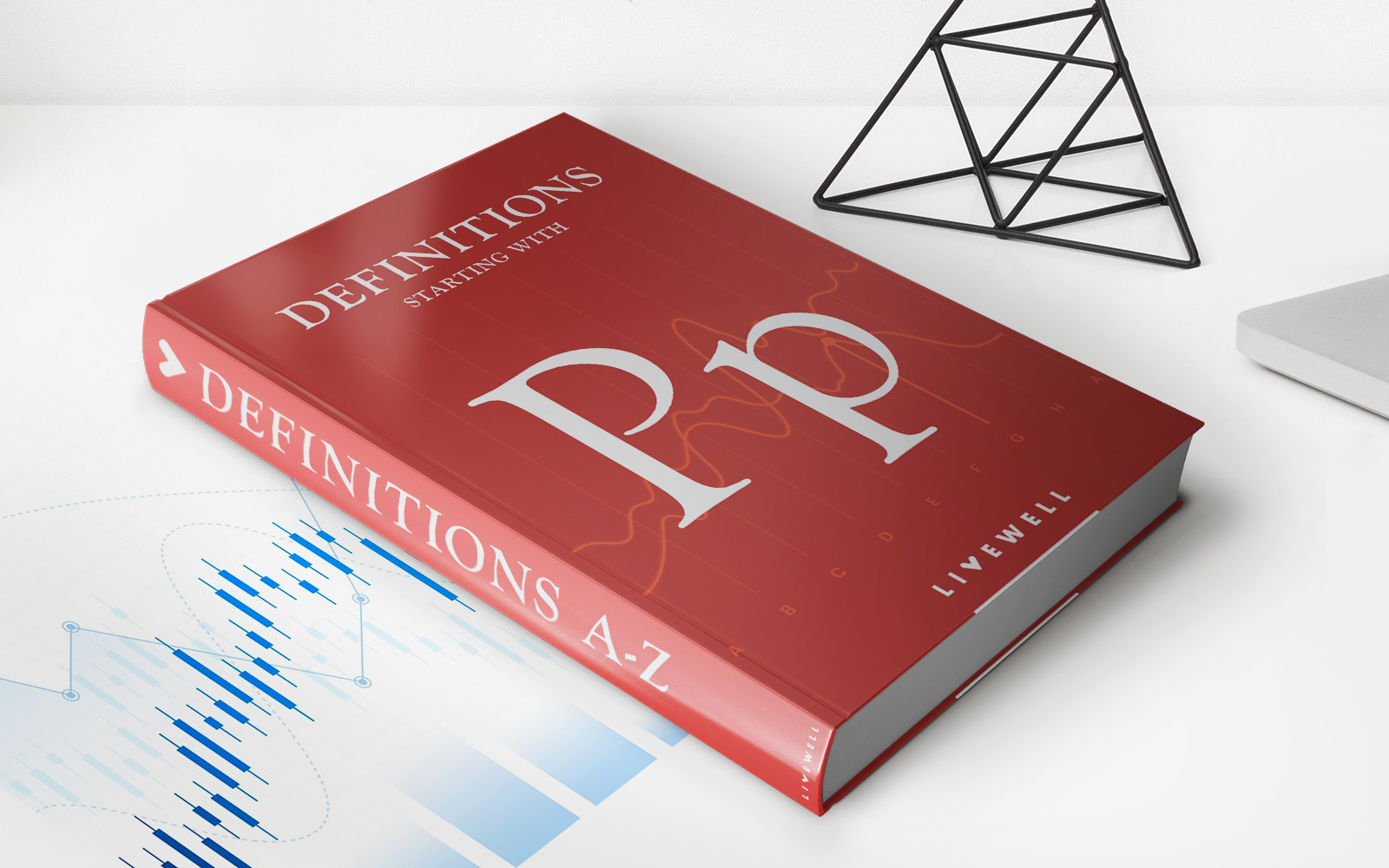Home>Finance>What Does It Mean To Default On A Student Loan?


Finance
What Does It Mean To Default On A Student Loan?
Published: November 3, 2023
Learn what it means to default on a student loan and the financial implications that come with it. Gain insights into managing your finances and avoiding default.
(Many of the links in this article redirect to a specific reviewed product. Your purchase of these products through affiliate links helps to generate commission for LiveWell, at no extra cost. Learn more)
Table of Contents
- Introduction
- Definition of Defaulting on a Student Loan
- Consequences of Defaulting on a Student Loan
- Damage to Credit Score
- Wage Garnishment
- Tax Refund Offsets
- Collection Calls and Lawsuits
- Loss of Eligibility for Future Financial Aid
- Options for Avoiding Student Loan Default
- Loan Repayment Plans
- Loan Rehabilitation
- Loan Consolidation
- Conclusion
Introduction
Student loans are a common financial resource used by millions of students to pursue higher education. While these loans provide access to education, it is crucial to understand the responsibilities that come with borrowing money. Defaulting on a student loan is a serious matter that can have long-lasting consequences on an individual’s financial well-being.
Defaulting on a student loan occurs when a borrower fails to make payments on their loan according to the agreed-upon terms. This can happen for various reasons, including financial hardship, unemployment, or simply mismanagement of finances. Regardless of the cause, defaulting on a student loan can lead to severe repercussions.
Understanding the implications of defaulting on a student loan is essential for borrowers to make informed decisions and take necessary actions to prevent default. In this article, we will delve into the definition of defaulting on a student loan and explore the consequences that borrowers may face.
Furthermore, we will also discuss the impact of default on credit scores, wage garnishment, tax refund offsets, collection calls and lawsuits, as well as the loss of eligibility for future financial aid. Lastly, we will provide an overview of the options borrowers have to avoid default, such as loan repayment plans, loan rehabilitation, and loan consolidation.
By gaining a comprehensive understanding of what it means to default on a student loan and the available options for resolving the situation, borrowers can take proactive steps to navigate their financial path responsibly.
Definition of Defaulting on a Student Loan
Defaulting on a student loan refers to the failure to make payments as agreed upon in the loan agreement. Typically, a loan is considered to be in default when the borrower has not made a payment for a specified period, often 270 days (9 months) for most federal student loans. Private student loans may have different default thresholds, so it is important to review the specific terms of the loan.
Once a loan is in default, the lender or loan servicer can take legal action to collect the outstanding debt. This can result in severe consequences for the borrower, including damaged credit scores, wage garnishment, tax refund offsets, and potential legal action.
It is crucial to understand the terms and conditions of your student loan agreement and the consequences of default before starting repayment. Familiarize yourself with the repayment schedule, interest rates, and any available options for deferment or forbearance in case of financial hardship.
If you find yourself struggling to make payments, it is essential to take proactive steps to address the situation before it escalates into default. Contact your loan servicer or lender to discuss possible alternative repayment options or assistance programs that may be available to help you stay on track with your loan payments.
By understanding what it means to default on a student loan and being proactive about managing your finances, you can avoid the significant consequences that come with default and maintain your financial stability.
Consequences of Defaulting on a Student Loan
Defaulting on a student loan can have severe and long-lasting consequences that can impact various aspects of your financial life. It is crucial to understand these consequences to fully grasp the importance of staying current on your loan payments.
One of the primary consequences of defaulting on a student loan is the damage it can cause to your credit score. Late payments and default will be reported to credit bureaus, resulting in a significant drop in your credit score. A poor credit score can hinder your ability to obtain credit in the future, such as getting a car loan, a mortgage, or even securing employment as some employers may check credit history as part of the hiring process.
Another consequence of default is wage garnishment. When in default, the government or the loan servicer can obtain a court order to garnish a portion of your wages to repay the debt. This means that a percentage of your paycheck will be withheld, making it even more challenging to meet your monthly expenses.
Defaulting on a student loan can also lead to tax refund offsets. The federal government has the authority to intercept any federal income tax refunds you may be entitled to and apply them towards your outstanding loan balance. This can be a significant financial blow, as many individuals rely on their tax refunds for various purposes.
In addition to wage garnishment and tax refund offsets, defaulting on a student loan can result in collection calls and possibly even lawsuits. Loan servicers or debt collectors may continuously contact you in an attempt to collect the debt. In some cases, they may take legal action against you, leading to further financial hardship and legal expenses.
Furthermore, defaulting on a student loan can also result in the loss of eligibility for future financial aid. If you default on a federal student loan, you become ineligible for any further federal financial aid until you resolve the default. This can limit your options for pursuing higher education or obtaining additional financial assistance.
Overall, the consequences of defaulting on a student loan can have a significant impact on your financial well-being. It is crucial to prioritize loan repayment and explore options for avoiding default to protect your credit score, financial stability, and future opportunities.
Damage to Credit Score
Defaulting on a student loan can have a devastating impact on your credit score. Your credit score is a representation of your creditworthiness and financial responsibility. When you default on a student loan, late payments and default status will be reported to credit bureaus, significantly lowering your credit score.
A lower credit score can have far-reaching consequences. Firstly, it can make it difficult for you to obtain new credit in the future. Lenders, such as banks or credit card companies, will view your low credit score as a risk factor and may be hesitant to extend credit to you. This can make it challenging to secure a car loan, a mortgage, or even obtain a credit card.
Furthermore, a damaged credit score can also affect other areas of your financial life. It can impact your ability to rent an apartment, as landlords often check credit history to assess the trustworthiness of potential tenants. In some cases, employers may also review credit history during the hiring process, especially for positions that involve handling finances or sensitive information.
Another consequence of a damaged credit score is higher interest rates. If you are able to secure credit despite your low credit score, lenders may charge higher interest rates to compensate for the perceived risk. This means that you will end up paying more in interest over the life of a loan, further straining your financial situation.
It is important to note that it takes time to rebuild your credit score once it has been damaged due to defaulting on a student loan. It may take several years of responsible financial behavior, such as making timely payments, minimizing debt, and managing credit wisely, to improve your credit score.
It is crucial to prioritize student loan repayment and avoid default to protect your credit score. If you are experiencing financial difficulties and are unable to make your loan payments, consider reaching out to your loan servicer to explore alternative repayment options, such as income-driven repayment plans or loan deferment or forbearance. Taking proactive steps to address your student loan situation can help prevent damage to your credit score and preserve your financial well-being in the long run.
Wage Garnishment
One of the serious consequences of defaulting on a student loan is the potential for wage garnishment. When you default on a loan, the government or the loan servicer can obtain a court order to garnish a portion of your wages to repay the debt.
Wage garnishment is a legal procedure in which a percentage of your paycheck is withheld by your employer and sent directly to the loan servicer to satisfy the outstanding debt. The exact amount that can be garnished varies depending on federal or state laws. In general, the garnishment amount can range from 15% to 25% of your disposable income.
This can have a significant impact on your monthly budget and your ability to meet your financial obligations. The garnished portion of your wages is deducted before you receive your paycheck, leaving you with less money to cover your living expenses, bills, and other financial commitments.
Wage garnishment can create a cycle of financial hardship, making it more challenging to break free from default. With less income available, you may be forced to make difficult choices such as cutting back on essential expenses or falling behind on other bills and debts.
Facing wage garnishment can also be emotionally stressful and cause embarrassment. Your employer will be informed of the garnishment, which may lead to awkward conversations or potential strain on your professional relationships.
To prevent or stop wage garnishment, it is essential to take action as soon as possible. Contact your loan servicer to discuss repayment options or alternative arrangements to help you bring your loan out of default. Some potential solutions may include loan rehabilitation or consolidation, where you can negotiate new repayment terms or combine your loans into a single payment.
By addressing the issue promptly and making arrangements to resolve your default, you can avoid or halt wage garnishment and regain control over your finances.
Tax Refund Offsets
Defaulting on a student loan can result in the offsetting of your federal income tax refund. When you default on a federal student loan, the government has the authority to intercept any federal tax refund you might be entitled to and apply it towards your outstanding loan balance. This process is known as a tax refund offset.
When your tax refund is offset, the amount that would have been refunded to you is instead redirected to repay your student loan debt. This can be a significant financial blow, as many individuals rely on their tax refunds for various purposes, such as paying bills, making major purchases, or building up their savings.
The Department of Education or the loan servicer is responsible for notifying you in advance about the intent to offset your tax refund. They will send a Notice of Intent to offset, informing you of the amount being offset and providing information on how to challenge or dispute the offset if you believe it was done in error.
If you receive a notice of intent to offset and wish to challenge the tax refund offset, you must act promptly. Contact the loan servicer or collection agency listed on the notice and provide any necessary documentation to support your case. However, keep in mind that challenging a tax refund offset can be difficult, as it typically requires proving that the offset was made in error or that you qualify for an exemption.
To avoid tax refund offsets, it is important to stay current on your student loan payments or take steps to resolve your default. Contact your loan servicer to discuss repayment options that may be more manageable for your financial situation. Taking proactive measures to address your student loan default can help you retain your tax refund and alleviate some of the financial burdens associated with default.
Collection Calls and Lawsuits
Defaulting on a student loan can lead to relentless collection calls from loan servicers or debt collectors. Once your loan enters default, the loan servicer has the right to contact you to collect the outstanding debt. These collection calls can be frequent, persistent, and potentially stressful for borrowers.
Lenders and collection agencies may employ various tactics to recover the debt, including phone calls, emails, letters, and even text messages. These communication efforts can often feel harassing and can disrupt your daily life and peace of mind.
If you are receiving collection calls, it is important to respond and communicate with the loan servicer or debt collector. Ignoring the calls will not make the problem go away and can actually lead to more aggressive collection efforts. Speak with them to understand your options and explore ways to resolve your default.
In some cases, if a borrower remains unresponsive or is unable to reach a repayment agreement, the loan servicer may take legal action by filing a lawsuit. Lawsuits are typically the last resort for lenders seeking to recoup the outstanding debt.
If a lawsuit is filed against you, it is essential to take it seriously and respond promptly. Ignoring a lawsuit can result in a default judgment, which can lead to further financial consequences, such as additional fees, wage garnishment, or even bank account seizures.
If you are facing a lawsuit, seek legal advice from an attorney who specializes in student loan issues. They can guide you through the legal process, help you understand your rights, and assist in developing a plan to resolve the situation.
To minimize collection calls and the risk of lawsuits, it is crucial to take action before defaulting on your student loans. Explore options such as income-driven repayment plans, loan rehabilitation, or loan consolidation to avoid default and the potential legal ramifications.
Remember, communication is key. Stay in touch with your loan servicer, respond to collection attempts, and seek professional assistance if needed, to navigate the challenges associated with defaulting on a student loan.
Loss of Eligibility for Future Financial Aid
Defaulting on a student loan can have long-term consequences on your educational pursuits. One significant repercussion is the loss of eligibility for future financial aid.
If you default on a federal student loan, you become ineligible for any further federal financial aid until you resolve the default. This means that you may no longer qualify for federal grants, loans, or work-study programs, which can severely limit your ability to finance your education.
Loss of eligibility for federal financial aid can have a profound impact on your educational opportunities. It can make it difficult to continue your studies, pursue advanced degrees, or even enroll in vocational or technical training programs that require financial assistance.
Not only does default limit your access to federal financial aid, but it can also affect your eligibility for certain state and institutional aid programs. Some states and colleges have their own programs that require students to maintain satisfactory academic progress and financial responsibility, which includes staying current on loan payments. Defaulting on a student loan can disqualify you from these programs, further limiting your options for funding your education.
It is essential to prioritize your loan repayment responsibilities and take proactive steps to avoid default. If you are facing financial hardship and are unable to make your loan payments, reach out to your loan servicer to explore options such as income-driven repayment plans, deferment, or forbearance.
By addressing your repayment challenges promptly and maintaining good standing on your student loans, you can preserve your eligibility for future financial aid, ensuring that you have the necessary resources to continue your education and achieve your academic goals.
Options for Avoiding Student Loan Default
Defaulting on a student loan can have significant consequences, but there are various options available to help borrowers avoid this situation. By understanding these options and taking proactive steps, you can manage your student loan debt responsibly and prevent default.
1. Loan Repayment Plans: Federal student loans offer several repayment plans that can make monthly payments more manageable. Income-driven repayment plans, for example, adjust your payments based on your income and family size. These plans can help borrowers struggling to make their standard loan payments.
2. Loan Rehabilitation: If you have defaulted on your federal student loan, you may be eligible for loan rehabilitation. This program allows you to make a series of agreed-upon, affordable payments over a set period. Successfully completing the rehabilitation program will remove the default notation from your credit report and restore your eligibility for benefits like deferment, forbearance, and loan forgiveness.
3. Loan Consolidation: Loan consolidation involves combining multiple federal student loans into one new loan. This can simplify repayment by merging your loans into a single monthly payment. It also provides the opportunity to extend the repayment term, which can lower your monthly payments. However, it’s important to note that consolidation may cause you to pay more interest over time.
4. Deferment or Forbearance: If you’re facing a temporary financial hardship, you may be eligible for deferment or forbearance. Deferment allows you to temporarily postpone your payments, while forbearance allows you to temporarily reduce or pause your payments. These options can provide temporary relief, but interest may continue to accrue during the deferment or forbearance period, potentially increasing the overall cost of your loan.
5. Communication with Loan Servicer: If you’re experiencing financial difficulties, it’s essential to communicate with your loan servicer. They can provide guidance and help you explore options tailored to your specific circumstances. They may have programs or solutions available to help you avoid default and maintain your loan in good standing.
It’s important to be proactive and take action as soon as you encounter difficulty making loan payments. Ignoring the issue can lead to default and the associated consequences. Reach out to your loan servicer to discuss your situation, understand your options, and develop a plan that works for you.
Remember, avoiding default not only protects your financial stability but also preserves your access to future financial aid and benefits. By actively managing your student loans and seeking assistance when needed, you can navigate your repayment journey successfully.
Loan Repayment Plans
One of the options available to borrowers to avoid student loan default is to explore different loan repayment plans. These plans are designed to make monthly payments more manageable by adjusting the repayment terms based on your income, family size, and other factors.
1. Standard Repayment Plan: This is the default repayment plan for federal student loans. It divides the loan amount into equal monthly payments over a fixed term of 10 years. Payments are calculated based on the loan balance and interest rate. While this plan may result in higher monthly payments, it allows you to pay off the loan faster and minimize the total interest paid over time.
2. Income-Driven Repayment Plans: Income-driven repayment plans are designed for borrowers with a high debt-to-income ratio or those struggling to make their standard payments. There are four main types of income-driven repayment plans: Income-Based Repayment (IBR), Pay As You Earn (PAYE), Revised Pay As You Earn (REPAYE), and Income-Contingent Repayment (ICR). These plans adjust your monthly payments based on a percentage of your discretionary income, typically capped at 10% to 20% of your income. After a certain period, any remaining balance may be forgiven.
3. Graduated Repayment Plan: The graduated repayment plan starts with lower monthly payments that increase gradually over time. This plan is beneficial for borrowers expecting their income to increase over the repayment period. The initial lower monthly payments can provide some financial relief, but keep in mind that the higher payments in the later years can result in more interest paid over time.
4. Extended Repayment Plan: For borrowers with high loan balances, the extended repayment plan extends the repayment term beyond the standard 10 years, typically up to 25 years. This plan can significantly reduce the monthly payments by spreading them out over a more extended period. However, keep in mind that an extended repayment term may result in higher overall interest paid over time.
It is important to note that loan repayment plans are specific to federal student loans. Private student loans may have different repayment options, so it’s vital to review the terms and conditions of your private loan and communicate with your lender about available repayment plans.
Before selecting a repayment plan, it is advisable to use online calculators or consult with a financial advisor to understand how the different plans will impact your monthly payments, total interest paid, and overall loan repayment timeline. This will help you make an informed decision based on your financial situation and goals.
Remember, if you are struggling to make your loan payments, consider reaching out to your loan servicer to discuss repayment plan options or explore possibilities for deferment or forbearance to temporarily pause or reduce your payments. Taking proactive steps to address your repayment challenges can help you avoid default and manage your student loan debt successfully.
Loan Rehabilitation
Loan rehabilitation is an option available to borrowers who have defaulted on their federal student loans. It allows you to bring your loans out of default and restore your eligibility for benefits like deferment, forbearance, and loan forgiveness.
The loan rehabilitation process involves making a series of agreed-upon, affordable monthly payments over a set period of time, typically nine months. The payment amount is determined based on your income and expenses, using a formula established by the Department of Education.
Successfully completing the loan rehabilitation program has several benefits. The default notation will be removed from your credit report, improving your credit score and increasing your chances of obtaining credit in the future. You will regain eligibility for federal student aid programs, allowing you to access financial resources for further education if needed.
It is important to note that loan rehabilitation is typically a one-time opportunity. Once you have rehabilitated your loan, you cannot take advantage of this option again if you default in the future.
If you choose loan rehabilitation, it’s crucial to make all the agreed-upon payments on time. Late or missed payments can result in the reinstatement of your default status and its associated consequences.
Once you have successfully completed the loan rehabilitation program, your loan will be transferred to a loan servicer, and you will resume regular monthly payments under the terms of your loan agreement. It is important to review and understand your new repayment terms to ensure that you can meet your financial obligations.
If you are considering loan rehabilitation but are unsure about your repayment options or need assistance with the process, reach out to your loan servicer. They can provide guidance, help you understand the requirements, and answer any questions you may have.
Remember, loan rehabilitation offers a chance to recover from default and restore your financial standing. By taking this opportunity and fulfilling your repayment obligations, you can regain control of your student loans and work towards a more stable financial future.
Loan Consolidation
Loan consolidation is an option available to borrowers to streamline their student loan repayment by combining multiple federal student loans into a single loan. This can make managing your loans more convenient and simplify your repayment process.
When you consolidate your loans, a new loan is created that pays off your existing loans. The new consolidated loan has a fixed interest rate based on the weighted average of the interest rates on the loans being consolidated. This can be beneficial if you have loans with varying interest rates, as it provides a more straightforward repayment structure.
There are several advantages to loan consolidation:
1. Single Monthly Payment: Consolidation combines multiple loans into a single monthly payment, making it easier to manage your finances. Instead of keeping track of multiple due dates and payment amounts, you only have to make one payment each month.
2. Extended Repayment Term: Loan consolidation often offers the option to extend the repayment term beyond the standard 10 years. This can lower your monthly payments by spreading them out over a more extended period. However, be aware that a longer repayment term may result in paying more interest over time.
3. Fixed Interest Rate: With loan consolidation, your new loan will have a fixed interest rate. This provides stability, as the interest rate will remain the same for the life of the loan. It eliminates the uncertainty that can come with variable interest rates on individual loans.
It’s important to note that loan consolidation is specific to federal student loans. Private student loans cannot be consolidated with federal loans through the federal consolidation loan program. Private loan consolidation options may be available from private lenders, but they may have different terms and conditions.
Before deciding to consolidate your loans, carefully consider the potential impact on your loan repayment. While consolidation can offer benefits, such as simplified repayment and potentially lower monthly payments, it may also result in paying more interest over time.
If you are considering loan consolidation, contact your loan servicer to discuss your options and understand the terms and conditions of the consolidation process. They can provide guidance and help you determine if loan consolidation is the right choice for your financial situation.
Remember, loan consolidation is a tool to simplify repayment, but it may not be the best solution for everyone. Evaluate your individual circumstances and consider factors such as interest rates, repayment terms, and overall loan repayment goals before making a decision.
Conclusion
Defaulting on a student loan is a serious matter with significant consequences. It can damage your credit score, result in wage garnishment, tax refund offsets, and collection calls. Default can also lead to the loss of eligibility for future financial aid, limiting your educational opportunities.
However, there are various options available to help borrowers avoid default and manage their student loan debt responsibly.
It is important to explore loan repayment plans, such as income-driven repayment or extended repayment, that can adjust your monthly payments based on your income and financial situation. Loan rehabilitation provides an opportunity to bring defaulted loans back into good standing, while loan consolidation can streamline repayment by consolidating multiple loans into a single loan.
Communication with your loan servicer is crucial to discuss your options and find solutions that work best for your circumstances. They can provide guidance on the available repayment programs and help you navigate through the process.
Avoiding default is paramount to protect your credit score, financial stability, and future opportunities. It is essential to prioritize loan repayment and take proactive steps to address any financial difficulties that may arise.
By staying informed, exploring available options, and seeking assistance when needed, you can successfully manage your student loan obligations and avoid the negative consequences of defaulting on a student loan.
Remember, it’s never too late to take control of your student loan debt. Evaluate your options, make a plan, and take the necessary steps to stay on track and secure a better financial future.














